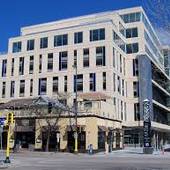Energy Efficient Mortgages? Who would have thought?
Apparently, energy-efficient mortgages have been available since the 1980's. They are known as an EEM, the mortgage combines a traditional loan product with ongoing savings related to ernergy-efficient improvements. The caveat is that the energy-saving measures must save more money that the increase in monthly mortgage payment from adding the cost of the corresponding efficiency improvements.
EEMs are used to finance new homes with energy-saving measures while an Energy Improvement Mortgage (EIM) finances energy upgrades in an existing home.
There are no special requirements to qualify for an EEM or EIM. Anyone who can qualify for a home mortgage can also qualify for an energy loan.
EEMs take energy savings into account when determining loan limits. Buyers of more energy-efficient homes can qualify for up to 10 percent more mortgage than would otherwise be possible. The lender looks at the entire picture of payments for mortgage and utilities when evaluating an applicant. Qualified energy efficient imporvements can include new windows, furnaces, additional insulation, energy-saving lights and appliances.
Recent statistics show that 58 percent of the greenhouse gas emissions in Minnesota are attributable to construction and operation of buildings.
The energy used in our homes for heating, cooling, and lighting accounts for 20 percent of all greenhouse gas emission in the United States, according to the Envitonmental Protection Agency.
In addition to reducing greenhouse emissions, energy-efficient homes are more comfortable. Unlike turning down the thermostat, newer, more efficient building products and techniques save energy while providing expected creature comforts.
Much of the housing stock in the Twin Cities is older and was built without an emphasis on energy savings. As fuel costs increase and a slowed real estate market has people staying for the long term, energy efficiency will become more important. become more important.
Lenders as well as homeowners have begun to look at the full cost of owning a home, including operating costs. Utility costs may eventually be more of a burden than the monthly mortgage payments as energy costs increase, asuming that homeowners locked into a 30 year low interest loan in the past several years.
HOW TO GET an EEM
The first step to getting an EEM or EIM is to find a lender that offers them. The next step is to have a qualified professional do a comprehensive evaluation of the energyuse in the home, or prospective home. ( Buying a new home in Minnesota does not necessarily assure energy efficiency.)
A Home Energy Rating System (HERS) is the only way to evaluate a home's efficiency. Several nonprofit agencies and companies in the Twin Cities are certified as third-party evaluators for HERS.
Once the homeowner has the HERS evaluation, for an existing home, he or she is responsible for getting bids to make the energy imporovements suggested by the evaluator. The improvement plan and costs are submitted to the lender, and the money for the work is put into escrow.
After the improvements have been completed, the rating professional returns to inspect and verify that the energy improvements were done correctly. The bank then closes the loan and release the improvement money as with any other mortgage. The cost of a HERS inspection for and existing home runs $400 to $600, which can usually be included in the mortgage amount.
In an effort to sell more new homes, some builders are paying for the HERS evaluation, which saves the buyer the $500 to $900 cost to evaluate new construction. The perception among builders is that the buyers are becoming savvier about the ongoing operating costs for a home. Some builder believe that energy efficiency is one of the few things selling right now. It can help sellers qualify and differentiate their homes in a sagging market.
For more information on EEMs, EIMs or the HERS evaluation, please feel free to contact me at Uptown Financial, Ben@UptownFinancial.com or 612-216-1388.
Resources:
www.natresnet.org (Residential Energy Services Network)
www.energystar.gov (Environmental Protection Agency)
www.spnec.org (St. Paul Neighborhood Energy Connection)
Article by Kim Carlson with EarthSmart Consumer

Comments(1)